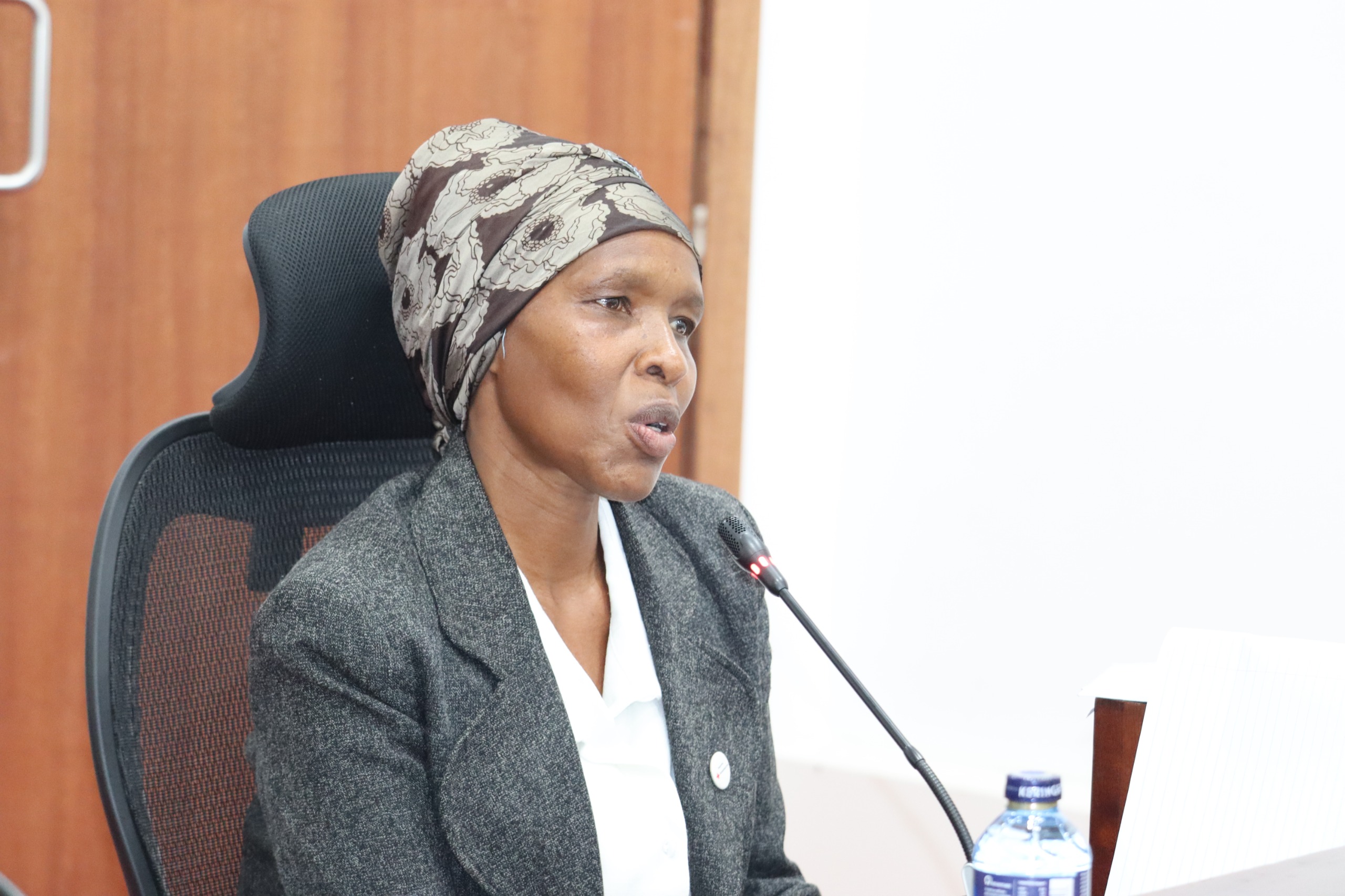𝐒𝐄𝐍𝐀𝐓𝐄 𝐋𝐀𝐁𝐎𝐔𝐑 𝐂𝐎𝐌𝐌𝐈𝐓𝐓𝐄𝐄 𝐇𝐄𝐀𝐑𝐒 𝐄𝐌𝐎𝐓𝐈𝐎𝐍𝐀𝐋 𝐏𝐄𝐓𝐈𝐓𝐈𝐎𝐍 𝐎𝐍 𝐏𝐋𝐈𝐆𝐇𝐓 𝐎𝐅 𝐏𝐄𝐑𝐒𝐎𝐍𝐒 𝐖𝐈𝐓𝐇 𝐈𝐍𝐕𝐈𝐒𝐈𝐁𝐋𝐄 𝐃𝐈𝐒𝐀𝐁𝐈𝐋𝐈𝐓𝐈𝐄𝐒
The Senate Committee on Labour and Social Welfare today heard an emotional petition from Beatrice Likiwop, a resident of Narok County living with multiple invisible disabilities. Representing Persons With Invisible Disabilities (PWIDs), Beatrice shared her challenges in navigating life with Status Epilepticus, Bradycardia and Fibromyalgia. These conditions, she explained, bring abrupt comas, social isolation and significant difficulties in accessing employment and as a result, medication.
Beatrice, who has advocated for PWIDs recognition since 2016, recounted her difficult 350-kilometre journey (one-way) to her County Referral Hospital, where she’s received essential medication only three times this year—a mere seven-day dosage each time. She described an especially distressing response from an official of the National Council of Persons With Disabilities (NCPWD), who told her to “buy yourself that that red card, go to church—you only need prayers.”
Her petition calls for the government to officially recognise invisible disabilities, integrate PWIDs into policies and guarantee constant medication access. She highlighted the need for “early interventions” to make essential treatments available within counties, alleviating the burdens faced by those with unseen conditions.
While empathising with the petitioner and others facing similar challenges, Senate Minority Leader, Sen Stewart Madzayo (Kilifi) emphasised that advancing recognition of invisible disabilities in policy would first require a clear legal interpretation distinguishing these conditions from general disabilities.
Sen Gloria Orwoba echoed this view, adding that the primary issue lies in the need to formally define conditions often dismissed as “illnesses” and acknowledge them as invisible disabilities deserving equal protection and support under the law. This shift, she argued, would ensure that this category of disabilities is neither sidelined nor misunderstood.
Sen Crystal Asige underscored the critical need for policy changes that go beyond the current structure, which she noted primarily addresses visible disabilities and provides only end-of-line care. Asige advocated for early interventions, including access to essential medication and support services tailored specifically to those with invisible disabilities.
“In Parliament, we often say that funding follows functions. For disabilities, however, latitudinal change follows systems. Legislators have a duty to create policies that shift societal attitudes, ensuring that invisible disabilities are recognised,” she said, stressing the far-reaching impact of legislative action on public perceptions and support for PWIDs.
Other stakeholders present at the meeting were Alice Mundia, Chairperson of Different-Talented Society of Kenya, and Macharia Njoroge, Director of Championing Inclusive Communities in Kenya. Their input underscored the need for comprehensive policy reform to support those with disabilities, visible and invisible alike.
















